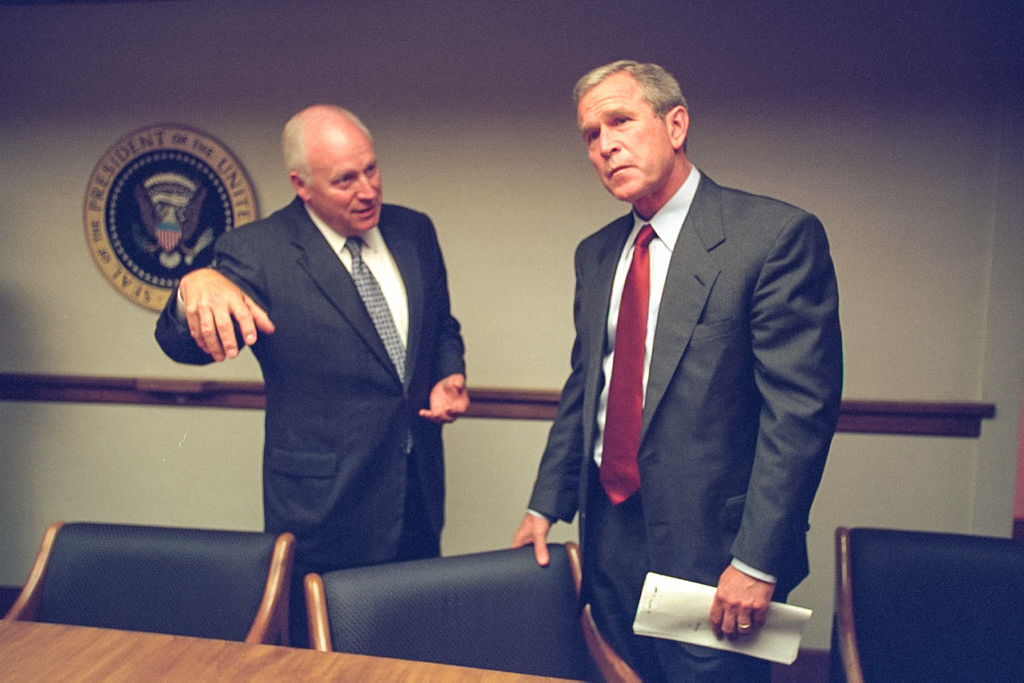Maybe Barabara Lee was clairvoyant; maybe she was the only person with a decent grasp of the relevant political philosophy. Either way, merely three days after Sept. 11, when the representative became the lone vote against beginning The War on Terror, Lee planted a flower that is blooming only now.
At issue was the Authorization of the Use of Military Force (AUMF), which authorizes the president “to use all necessary and appropriate force against those nations, organizations, or persons he determines planned, authorized, committed, or aided the terrorist attacks that occurred on September 11, 2001, or harbored such organizations or persons, in order to prevent any future acts of international terrorism against the United States by such nations, organizations or persons.”
History has proven Lee’s warning — that the authorization was too much, too fast — correct. Since their passage into law, presidents have used those anodyne words to wage wars of indefinite length in ways Congress never intended.
Trouble first arose when the Bush Administration used the AUMF to justify its warrantless wiretapping. In a Department of Justice memo on the wiretapping’s legality, the administration explicitly relied upon the AUMF, even though Congress authored the 1978 Foreign Intelligence Surveillance Act to curtail such surveillance. To justify itself, the administration cited Hamdi v. Rumsfeld, a Supreme Court decision which interpreted the AUMF as granting the president the ability to engage in the “fundamental incident[s] of waging war.” From there, it was a mere legal flourish for the administration to argue that “[t]he history of warfare makes clear that electronic surveillance of the enemy is a fundamental incident to the use of military force.”
That rationalization has not aged well, but it does represent the Bush Administration’s intention to, at the very least, defend itself using a scintilla of legal plausibility. President Obama made no such effort: Just eight years later, his administration argued that the AUMF authorized military action against ISIS, a group that neither existed on Sept. 11 nor was politically allied with Al-Qaeda at the time.
President Trump — never one to avoid political controversy — has gotten in on the action as well. When the media questioned the legality of his attacks on Syria, then-Speaker Ryan rose to his defense. The Speaker explained his belief that the president “has the authority under the existing AUMF” and that it was not wise to have various authorizations which “tie the hands of our military behind their backs.” Notice the casual equation of the president and the military and remember that the entire purpose of Congress’s power to both declare and set the conditions of war is to tie the hands of the president.
Cynics often observe, with more accuracy than relevance, that Congress has only declared war on 11 occasions. (The Senate admits to as much on their website, so this is an open secret that can’t even bother to be salacious.) These declarations tend to be clustered around specific military conflicts, the last being World War II, when Congress issued separate declarations for Japan, Germany, Italy, Bulgaria, Hungary and Romania. No one argues that these separate declarations made America less safe. What they did do was ensure that the president could not indiscriminately wage war — even a world war — merely because “he determine[d]” it was in the country’s best interest.
Moreover, even the AUMF was not as far reaching as the Bush Administration initially requested. The administration originally wanted authorization to “deter and preempt any future acts of terrorism or aggression against the United States.” But in a rare act of political clarity, Congress rejected the request because it gave the president far too much power.
Americans, reasonably fed up with the toxicity of our political discourse, often wax nostalgic for Sept. 12, when we were supposedly more united than ever. Perhaps this is true. But agreement on bad policy is worse than disagreement, even of the toxic sort. If, despite their misgivings, Americans are truly committed to political acrimony, a silver lining may be that the AUMF — now the longest authorization of military force in United States history — no longer has broad support. Americans should welcome this, for it strains credulity to believe that, when Congress passed the AUMF, they believed George W. Bush’s successor would use the authorization in becoming the first president in history to spend his entire time in office at war. President Trump surely cannot be far behind.
Agreement on bad policy is worse than disagreement
September 12, 2019
Photo by via National Archives
President Bush and Vice President Cheney were moved to the President’s Emergency Operations Center on September 11, 2001.
Donate to The Battalion
Your donation will support the student journalists of Texas A&M University - College Station. Your contribution will allow us to purchase equipment and cover our annual website hosting costs.





















